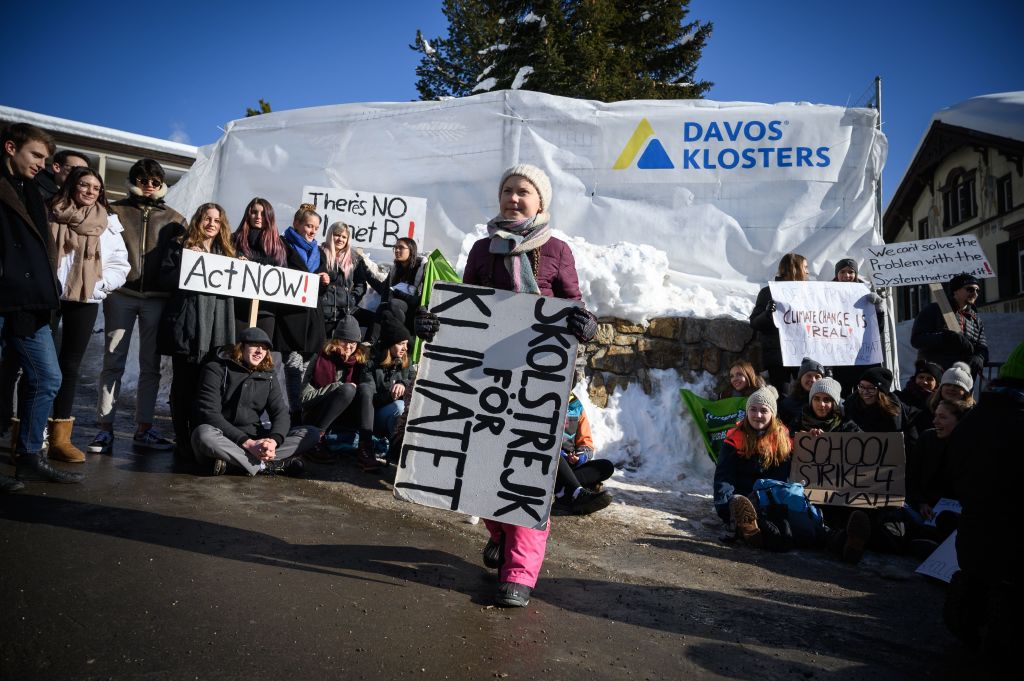
The narrative of business being the driver of social good is as old as it is appealing.
It once again underpinned the annual gathering of elite business leaders, politicians and wealthy individuals at the World Economic Forum in Davos, Switzerland. And yet every year, the gap has become starker between the aspirations I hear at this festival of wealth and the conditions of poverty and inequality I witness through Oxfam’s work.
The best solutions to these problems belong, before all, with governments: their policies created this crisis; they can solve it by ensuring corporations and wealthy individuals pay their fair share of tax, then investing that money into means proven to reduce inequality, like free quality healthcare and education for all.
But when it comes to business, those of us who gather in Davos year after year must recognize that tackling the world’s most urgent questions requires a fundamental transformation to the dominant business model, in which shareholder returns trump any other considerations in society.
We should rid ourselves of the belief that business innovation inherently means social progress. The shareholder-first model has inhibited progress on tackling the breakdown of the world’s climate, and it has channeled an ever-growing portion of wealth to a small global elite at the expense of the majority of citizens — both in the U.S. and across the globe.
This is cause for concern for business, just as it is for a strong economy. When, for example, corporations do not pay their fair share of taxes, they undermine the ability of governments to invest in an educated and healthy workforce, good transport connections, the rule of law and so on — all of which they rely upon. A more unequal world is a riskier world to do business. Over 12,000 business people across 140 economies rated unemployment and underemployment, as well as failure in national governance systems, as the biggest risks for doing business, according to research by none other than the World Economic Forum, which hosts the Davos meeting.
We need a debate about how to overcome existing tensions, trade-offs and conflicting interests between the business elite and the vast majority of people in our societies.
Fortunately, momentum is building behind exciting proposals to reshape our economic model, including in the U.S. — from worker cooperatives reinvigorating struggling communities in cities like Cleveland, New York or Jackson, and employee-owned enterprises breaking through the straitjacket of short-term profit maximization, like Chobani and Eileen Fisher, that are hardwired to better align economic viability and social impact. I welcome companies rejecting regressive tax reforms, which contribute to rising inequality, like Patagonia, and legislative proposals like Senator Elizabeth Warren’s Accountable Capitalism Act, which proposes sweeping corporate governance reforms to rebalance the skewed power dynamic between U.S. corporations and workers.
Big corporations must recognize that their policies are often part of the problem. They include employment practices that do not guarantee decent working conditions and a living wage, tax avoidance strategies that deprive governments of money to invest in universal health and education, and lobbying for business that damages our environment or undermines human rights.
We must also talk about rebalancing power. Large companies use their muscle to transcend jurisdictions, obscure their ownership, source globally and monopolize their markets — making most people feel increasingly powerless as citizens, workers or consumers. It will take a great deal for big business to tackle what people increasingly realize: that their short-term gains in power and money are also their long-term losses in inequality, political dysfunction and social polarization.
For that reason, let’s be clear what Davos is. The Davos set has proven itself to be full of adept disruptors and innovators. Davos should be a space of creative thinking and bold experimentation.
But Davos should not be where political agendas are decided. To do that, we must include all voices, not just the elite. That’s not possible in the Swiss Alps.
I am not naïve about business actually changing a system that benefits it so much. But I am eager to be proven wrong.
More Must-Reads from TIME
- Donald Trump Is TIME's 2024 Person of the Year
- Why We Chose Trump as Person of the Year
- Is Intermittent Fasting Good or Bad for You?
- The 100 Must-Read Books of 2024
- The 20 Best Christmas TV Episodes
- Column: If Optimism Feels Ridiculous Now, Try Hope
- The Future of Climate Action Is Trade Policy
- Merle Bombardieri Is Helping People Make the Baby Decision
Contact us at letters@time.com